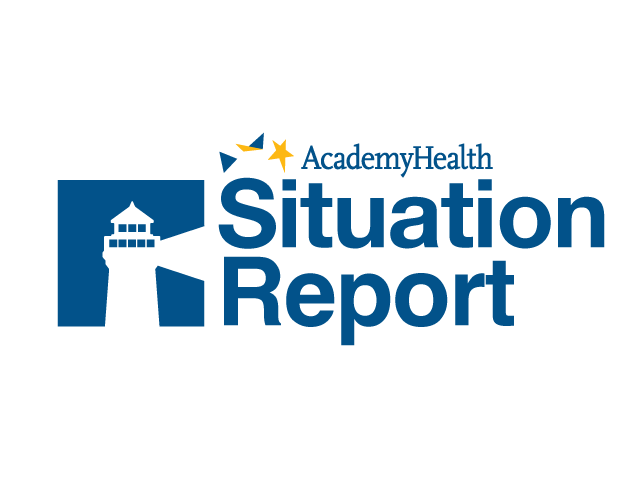
In this edition of the Situation Report, we examine critical issues facing the health research community. From the recent violent attack at CDC headquarters highlighting safety concerns for public health professionals, to the return of the FDA’s vaccine chief amid a polarized regulatory environment, and the debate over mRNA vaccine science and related funding cuts — these developments underscore the challenges health services researchers confront in advancing evidence-based policy and maintaining public trust.
- Attack at CDC Highlights Growing Challenges for Public Health Researchers
- FDA Vaccine Chief Returns
- Experts Clarify mRNA Vaccine Science Amid Public Misunderstandings
- Medical Journal Rejects Call to Retract Vaccine Information
Attack at CDC Highlights Growing Challenges for Public Health Researchers
The recent shooting at the CDC campus is a sobering reminder of the physical risks facing public health professionals. First and foremost, our thoughts are with those affected, and the safety and well-being of researchers and public health workers must remain the highest priority.
For those committed to ensuring health decisions are grounded in rigorous science, this incident underscores the urgent need to protect not only the safety of public health workers but also the integrity and credibility of the research ecosystem. As misinformation campaigns continue to undermine public confidence, the consequences extend beyond individual safety to threaten the foundation of evidence-based policy and practice.
Health services researchers play a critical role in advancing accurate, transparent communication and advocating for environments where science can inform policy without fear or interference.
Key considerations for health services researchers:
- Prioritize strategies that build public trust in research and counter misinformation effectively.
- Support policies and workplace practices that safeguard health researchers and public health institutions.
- Collaborate across disciplines and sectors to reinforce the role of evidence in health decision-making.
FDA Vaccine Chief Returns
Dr. Vinay Prasad, the FDA’s top vaccine regulator, is back at the FDA after a brief departure. Prasad initially stepped down from his position as head of the Center for Biologics Evaluation and Research amid criticism from various stakeholders particularly over his decision to pause a gene therapy after two patient deaths. Citing a desire to avoid more controversy and spend more time with family, Prasad announced he was stepping down. The Associated Press reported he was ousted from his role, according to sources familiar with the matter. However, less than two weeks after his departure, he is returning to his post, backed by FDA Commissioner Marty Makary and HHS Secretary Robert F. Kennedy Jr., both of whom are outspoken critics of existing vaccine approval processes and current prescription practices for some psychiatric and maternal health medications. Taken together, these leadership shifts underscore the increasingly complex and polarized environment in which U.S. health agencies operate, highlighting the challenges in maintaining objectivity in regulatory science and evidence-based health policy.
Experts Clarify mRNA Vaccine Science Amid Public Misunderstandings
Last week, HHS Secretary Robert F. Kennedy Jr. announced the termination of 22 Biomedical Advanced Research and Development Authority (BARDA) grants allocated for mRNA vaccine This week, Kennedy cited a review of scientific research, expressing concerns about the effectiveness and safety of mRNA vaccines., The referenced research, a nearly 200-page list of studies released by HHS, has been disputed by other scientists and credits several known vaccine skeptics.
In light of ongoing debates surrounding vaccine science, health services researchers are encouraged to to champion scientific advancement in the field by engaging in rigorous research and open communication with peers, students, and the public.
Medical Journal Rejects Call to Retract Vaccine Information
The Annals of Internal Medicine recently declined HHS Secretary Robert F. Kennedy Jr.’s request to retract a Danish study about vaccines, the journal’s editor told Reuters. Specifically, this study analyzed data from more than 1.2 million children over more than two decades and did not find evidence that exposure to aluminum in vaccines increase health risks for children. On TrialSite News, Kennedy authored a post calling on the Annals of Internal Medicine to retract the study. The journal’s editor-in-chief, Dr. Christine Laine, stated she saw no reason for retraction, and the lead author of the study stated he had confidence in the study. For researchers, this incident underscores the importance of upholding rigorous standards of scientific integrity to ensure credibility and foster public trust in findings.
Previous Updates
This is the latest in a series of Situation Report updates from AcademyHealth. You can find prior issues here.
We’re pleased to offer this work as a free resource, and if you’d like to support our efforts to keep it going, we’d truly appreciate your donation. You can contribute here. Thank you for your support!